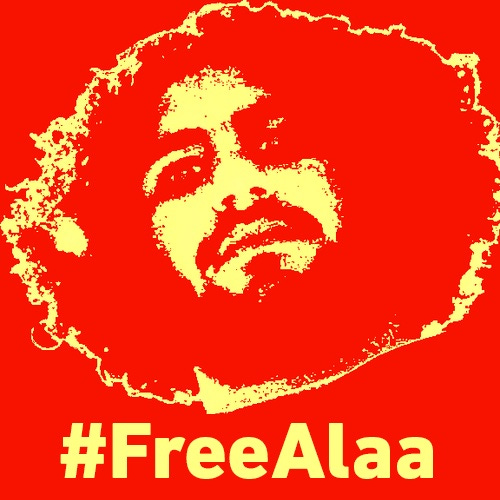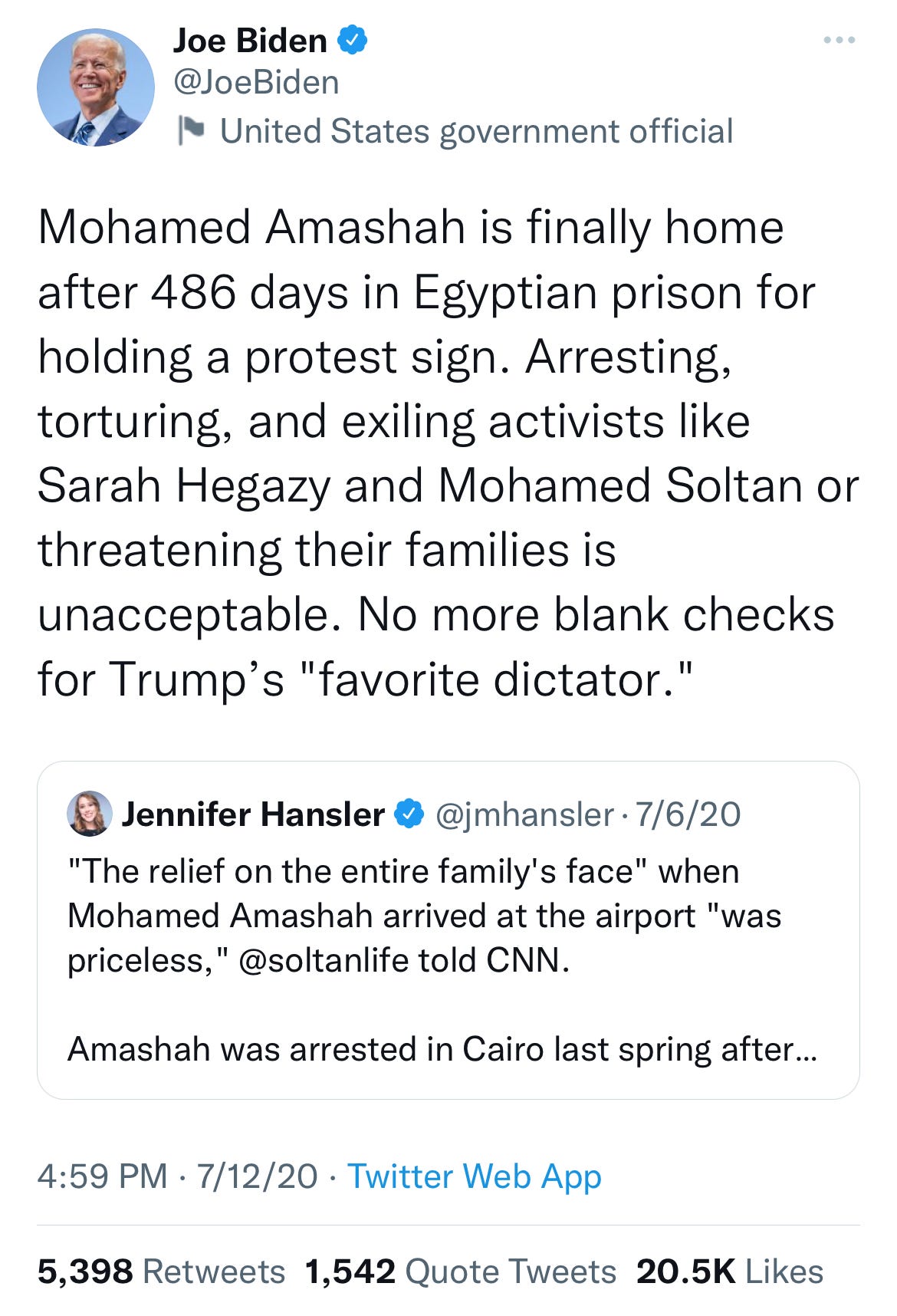#FreeAlaa
Egypt's political prisons are a disgrace. Enough already.
Eight years ago, I wrote a column for Foreign Policy entitled “Let Your People Go.” The subhed read: “Egypt's military government will never be legitimate until it stops haphazardly jailing scores of political prisoners.” That was true in 2014. It’s still true today. So many of Egypt’s best and brightest have rotted away in its prisons for so long, held without trial indefinitely under horrible conditions. Every now and then it finally releases a few of those political prisoners, getting some positive headlines without changing anything fundamental (see this thread from Mada Masr for some of the most recent cases). As Human Rights Watch points out, no sooner do they release a few people than they go and arrest more. All of them should be released, unconditionally. None of them should ever have been detained in the first place.
No single person is more emblematic of this blight on Egypt’s regime than the activist blogging pioneer Alaa Abd el-Fattah (read the brilliant collection of his essays here). How many #FreeAlaa campaigns have activists been forced to mount over the years? Too many. This time around, Alaa had been detained without trial for two years before being sentenced to a five year prison term in a sham trial — all for a Facebook post. He’s two months into a hunger strike. His family and friends, backed by a wide range of human rights advocacy organizations, have been pushing for the UK (which granted his request for citizenship in April) to intervene on his behalf. The public spotlight has helped a little, getting him transferred to slightly better conditions, but it’s not enough.
I humbly add my voice to the coalition of MENA human rights advocacy organizations which have released an open letter in support of this call: #FreeAlaa and all the other political prisoners. I hope the British government will step up to its responsibilities before it’s too late.
I wish the U.S. government would add its voice to the call as well. I remember this one guy currently in the administration who promised that he would support something like that: Joe Biden. In a terrific article last week, Robert Mackey reminded us that Biden promised on the campaign trail to condition US aid to Egypt on its human rights performance:
“No more blank checks for Trump’s favorite dictator.” Biden, sadly, has done nothing of the kind, despite some welcome Congressional pressure. A highly unusual withholding of $130 million in aid over human rights issues (a good move!) was immediately offset by an approval of $2.5 billion arms sale. That’s as big a walkback as what we’re now seeing on Saudi Arabia being made a “pariah” over the Khashoggi murder. There’s just a palpable sense that nobody really thinks that pushing on human rights or democracy will make any difference, so why add further friction to the already troubled relationships with regional allies?
Here’s one reason, even if it’s admittedly a bit of a stretch. There’s a reason that most people in the Middle East roll their eyes at the United States defining the stakes in Ukraine as “democracy against autocracy.” They know very well how quickly US support for democracy crumbles on contact with the Middle East. In the US debates, the tension is too often just sidestepped. Anne Applebaum’s influential articles calling on the United States to lead the world’s democracies against autocracy just don’t mention Saudi Arabia, the UAE or the Middle East at all. Of those that do, most just argue that we should make an exception as long as Middle East autocracies are ‘status quo’ or otherwise useful. A world divided in an existential struggle between democracy and autocracy, except in the Middle East where autocrats just need to be useful. Once again, same as it ever was.
Biden’s decision to travel to Saudi Arabia to bend the knee to Mohammad Bin Salman and move past the murder of Jamal Khashoggi suggests that his team has come to agree with that logic. He’s not going to be focusing on the global divide between democracy and autocracy when he visits Riyadh. Ukraine, oil prices, and normalization with Israel are the priorities. Perhaps unexpected support for the call to free Alaa Abd el-Fattah would be a low cost way of showing that even in the Middle East, Biden hasn’t given up completely on the human rights and democracy which he claims to believe is the central divide in today’s international system?
Also, it would absolutely be the right thing to do. In case that still matters.



